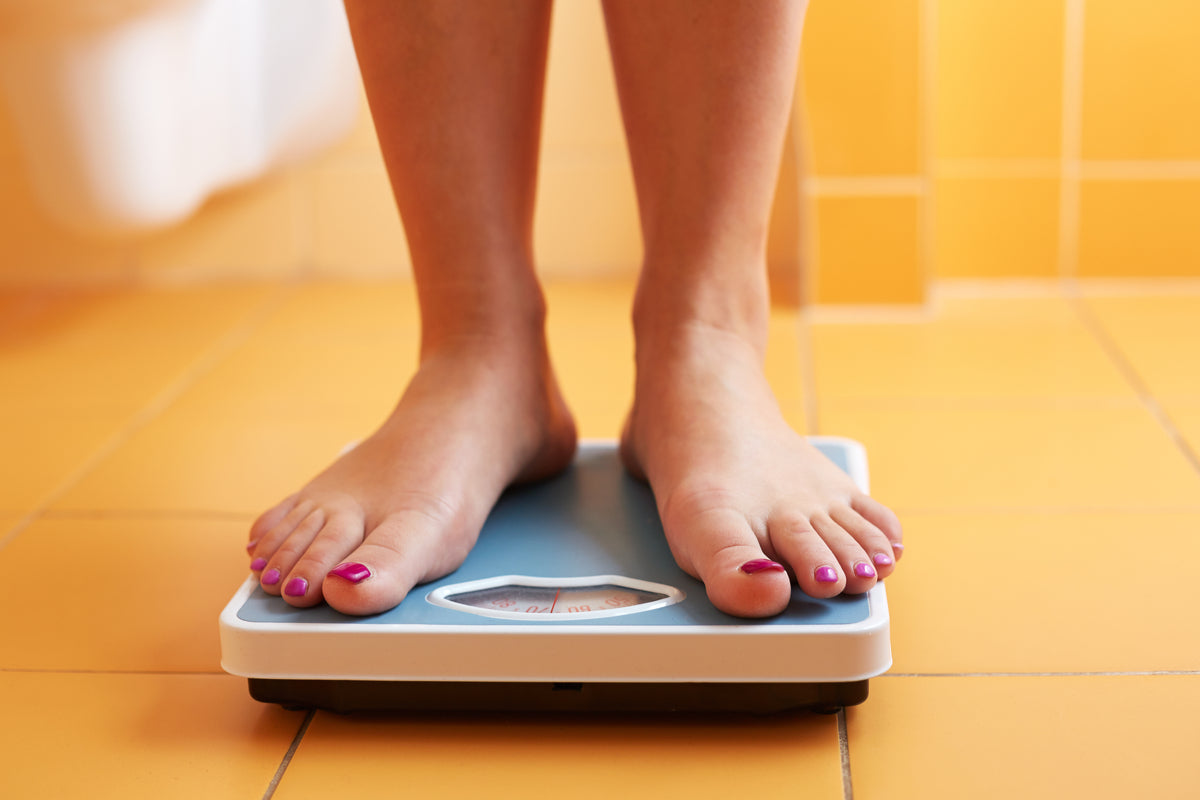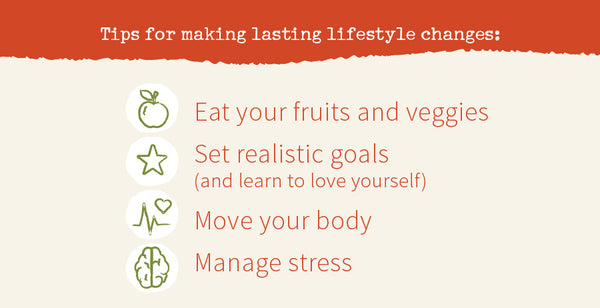
We’ve all heard about fad diets. Chances are, you’ve even tried one or two. But whether we’re talking about “caveman” eating or restricting yourself to baby food (yes, the Baby Food diet is a real thing), these diets all have one thing in common: they aren’t effective. Not in the long term, at least.
Before we dive in as to why most fad diets fail, let’s first cover some basics.
What are fad diets exactly?
A fad diet is a trendy weight loss plan that boasts fast, dramatic results. These diets aren’t new. Americans have gobbled them up for centuries.
Low-carb mania first reared its head in the 1820s, with the publishing of The Physiology of Taste by Jean Brillat-Savarin. In the 1930s, Lucky rolled out their cigarette diet campaign with the slogan “Reach for a Lucky instead of a sweet.” Our grandmothers went crazy for the Cabbage Soup diet of the 1950s. In the 90s, we ditched carbs again in favor of bacon, thanks to Dr. Atkin’s heart-harmful advice.
In the 2018 world of 24/7 news, we’re bombarded with conflicting nutrition advice and pseudo-science from so-called experts. Every week a new diet is touted as the “best” for weight loss, from Paleo and Keto to the Blood Type diet and the Master Cleanse.
And while current fad diets may blame or praise different nutrients, they all promise the same thing: you will lose weight fast.
The widespread appeal of fad diets makes sense; 76.1% of the American adult population aged 20 and up is overweight, including obesity. People who have obesity are at increased risk of developing serious health conditions, like high blood pressure, heart disease, type 2 diabetes, stroke, gallbladder disease, bone disease, certain cancers, depression, and more.
On top of these genuine health concerns, American culture idealizes certain types of bodies over others — a driving force behind the $66 billion American Weight Loss Industry.
Not to mention, we’re living in a time of instant gratification and patience isn’t really our strong suit, culturally speaking.
Whether it’s the Keto diet or the Alkaline Diet, the motivation behind losing weight may be solid; we want to be healthier, to look and feel better. The method, however, this quick fix approach, is where we keep getting tripped up.
Most fad diets fail because...
They’re not sustainable.
Sure, maybe you’ve lost weight with one of these current fad diets. But chances are you gained it all back shortly after the diet was over.
You’re not alone here. 45 million Americans go on a diet each year.
Trendy diets rope us in because they play into our impatience and desperation. If a claim seems too good to be true, it probably is.
Studies show most diets don’t work. Fad diets are typically about enacting temporary changes for quick temporary results, leading people to gain weight back quickly after resuming their normal eating habits. Once that weight is gained back, they move on to the next fad diet.
And isn’t the definition of insanity doing the same thing over and over and expecting the same results?
Plus, Fad Diets Just Aren’t Healthy
From a mental health standpoint, Yo-Yo dieting isn’t doing anyone any favors. Most fad diets fail because they backfire; restricting calories often leaves dieters feeling hungry and leads to a diet-binge cycle.
Constantly dieting can also be harmful to self-image and lead to ongoing food issues. Chronic dieters may experience guilt or a sense of failure when their diets aren’t successful or when their weight boomerangs quickly after finishing their diet.
Micromanaging everything you eat with calorie counting can lead to unhealthy obsession with food. Dieting is the most important predictor of whether a person will develop an eating disorder. One study showed those who diet moderately are 5 times more likely develop an eating disorder.
Fad diets may also jeopardize your physical health. They’re often lacking important nutrients -- like fiber, complex carbohydrates, vitamins, and minerals.And because they’re hard to maintain, fad diets trap dieters in cycle of weight loss and gain, which puts stress on the body. There’s a doubled risk of death by heart attack and stroke for Yo-Yo dieters with heart disease.
So if fad diets aren't the answer, then what is?
Stop dieting and make lifestyle changes instead
The good news is you can reach your health goals by ditching fad diets and making lasting lifestyle changes, with these nutrition expert tips:

1. Eat your fruits and veggies
Studies show the optimal diet for not only healthy weight loss, but prevention or even reversal of chronic diseases (like heart disease) is a whole food plant-based diet. While at first glance, one may think a whole food plant-based is just another fad diet, it’s anything but fleeting. This is a lifestyle change, not a diet. The idea is to move away from the eating habits that hurt their health and move towards healing foods instead.
And plant-based foods are naturally low in calories and high in nutrients, so calorie restriction is not part of the deal. This leads to a healthier relationship with food, where former dieters stop micromanaging meals and put an end to weight loss obsession.
2. Set realistic goals (and learn to love yourself)
2018’s online world has bred a rampant comparison culture. Most fad diets fail because they prey on our insecurities, setting us up for failure. If you need to lose weight to be your healthiest self, make weight loss a goal. However, for your mental (and physical) health, shifting your focus from being thinner to being healthier can go a long way in creating and achieving those goals.
Learning to embrace your body won’t just help with self-image, but also can lead you to treat your body better, and ultimately, help you reach your health goals quicker.
3. Move your body
Because fad diets are focused on quick fixes, they hardly ever mention exercise. The truth is, exercise needs to be part of any healthy lifestyle or long-term weight loss plan. Regular daily exercise can help with mental health, cognitive health, sleep quality, cancer prevention, immune function, high blood pressure, and life span extension.
Out of shape? Start small! You don’t need to get a gym membership. Just going for a walk every day has profound health benefits.
4. Manage stress
Chronic stress increases cortisol, a hormone that boosts appetite. So if you find that you “stress eat,” it may be time to manage your stress levels. Changing your diet and workout regimen can help, but food and exercise are only two pieces of the puzzle. Practicing mindfulness in your day-to-day can have life-changing effects on your mental health and overall contentedness. Take a few minutes to meditate each day.
Don’t beat yourself up when fad diets fail. They're not designed for long-term success - they're sold as "quick fixes." Want to get healthy and stay healthy? Focus instead of making sustainable changes to your lifestyle.
Ready to make lasting changes and lose the weight for good?
Join a growing movement of people who are losing the weight for good and are free from food obsession.
Guaranteed Weight Loss Program
https://www.mamasezz.com/pages/myweightloss
By Ali Brown
Ali is a nutrition and lifestyle writer and editor, with a Plant-Based Nutrition Certificate from the T. Colin Campbell Center for Nutrition Studies.




Good catch, Terry! We’ve updated that stat to include “adults aged 20 and over.”
From the reference you included (CDC data), it appears that the the correct statement should not be “76.1% of the population is overweight or obese,” but instead should be “Percent of adults aged 20 and over with overweight, including obesity: 71.6% (2015-2016).”
This is a fairly small or minor point given the epidemic of weight problems in America, but just want to be accurate. Am I missing something?